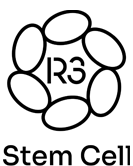What's an NK Cell?
Overview
Natural KILLER CELL THERAPY
Overview of Immunotherapy, Natural Killer Cells and Treatment with R3 Stem Cell in Mexico and Pakistan
What is immunotherapy?
Immunotherapy involves strategies used to stimulate and reactivate the immune system to control and combat oncological and viral processes. Its main advantage lies in the absence of the side effects caused by conventional therapies such as radio and chemotherapy.
Its two main pillars involve:
- Immune system reactivation using external biological components.
- Extracting immune cells for expansion and activation in the laboratory.
What are Natural Killer Cells?
NK Cells are part of the immune system, originating similarly to T and B lymphocytes. They serve as the first line of defense against viral diseases and cancerous processes. NK cells are widely studied and used in various tumors, showing greater effectiveness in non-solid tumors compared to solid ones. They have a natural ability to eliminate virus-infected or tumor cells.
TREATMENT PROGRAM FOR NATURAL KILLER CELL IMMUNOTHERAPY
Schedule Now+1 (844) 4NK-CELL
How do Natural Killer Cells work?
NK cells are part of the innate immune system. This means unlike T and B lymphocytes, they do not require prior exposure for activation. They use two main mechanisms for cytotoxic function (cell elimination).
Direct mechanism: Release substances that create pores in the target cell’s surface (Granzymes and Perforins).
Indirect mechanism: Send signals through surface molecules that force the target cells into cell death processes (FAS and TRAIL death receptors).
MHC 1 and NK Function
Natural Killer cells have the ability to recognize cells with abnormally low levels or absence of Major Histocompatibility Complex class I (MHC I) molecules. Normal, healthy cells present MHC I on their surface, which normally protects them from NK cell action. When cells present low levels of MHC I, as occurs in many tumor cells or cells infected by viruses, NK cells can recognize and attack these abnormal cells.
When an individual has a healthy amount of NK Cells, this function is extremely valuable and often prevents cancers or viruses from spreading and becoming worse. However, when NK cells are low in numbers, either due to a disease process or being “used up” fighting off cancer or viruses, diseases may proliferate.
Selective Elimination
Due to this recognition mechanism where NK cells recognize one’s normal cells, NK cells are designed to target and eliminate tumor or infected cells without damaging normal cells in the body. The absence of MHC I on abnormal cells serves as a signal for NK cells to initiate their cytotoxic action. This process ensures that NK cell therapy focuses on problematic cells and
not on healthy ones.
Thanks to their ability to recognize the absence of MHC I on abnormal cells, offer a safe and effective allogeneic therapy for the elimination of tumor and viral cells while preserving the integrity of normal cells.
For Which Type of Patients (Cancer) does NK Cell Immunotherapy help?
Any cancer patient is a candidate for NK cell immunotherapy. Due to the NK cells’ mechanism of action, individuals with non-solid tumors have reported a higher success rate, including complete remission.
It can be applied alongside other pharmacological or cellular therapies.
- A 24 hour window between therapies is suggested.
- If 24 hours are not available, apply therapies with the maximum available time difference.
Chemotherapy or radiotherapy is not recommended within the first week before or after NK cell treatment.
Malignant conditions Where NK Cell Treatment can Help:
- Acute Myeloid Leukemia (AML)
- Chronic Myeloid Leukemia (CML)
- Multiple Myeloma (MM)
- Myelodysplastic Syndrome
- Acute Lymphoblastic Leukemia (ALL)
- Chronic Lymphocytic Leukemia (CLL)
- Non-Hodgkin’s Lymphona
- Hodgkin’s Lymphoma
- B-cell Lymphoma
- Prostate Cancer
- Ovarian Cancer
- Non-Small Cell Lung Cancer
- Glioblastoma
- Head and Neck Cancer
- Melanoma
- Liver Cancer
- Colorectal Cancer
- Renal Cell Cancer
- Breast Cancer
- Neuroblastoma
- Biliary Tract Cancer
- Pancreatic Cancer
Early Diagnosis: Patients in early stages can benefit from a combination of therapies, as this stage offers the possibility of integrating both conventional treatments and cellular immunotherapy. The use of NK cell therapy in conjunction with chemotherapy, radiotherapy, or surgery can enhance the patient’s response and improve therapeutic outcomes.
Timing of treatment
Pre-Surgery: NK cells may reduce tumor mass or improve response to subsequent treatment.
Immediately Post-Surgery: NK cell immunotherapy can reduce residual cells or
prevent recurrences.
One Week After Chemotherapy: Administration can be done after recovery from chemotherapy but before the disease could progress. It is important to note that chemotherapy could eliminate or significantly affect the effectiveness of NK cells.
Prognosis
NK cells have been applied safely and with positive effects in almost all tumor types. Current clinical trials report a success rate above 80%, compared to groups where patients only received conventional therapy.
Treatment effectiveness depends on three key points:
1) Type of Tumor
2) Tumor State and
3) Overall health of the patient.
Patients with Early or Intermediate Diagnosis: In these cases, the success rate is significantly higher. Expected outcomes range from a considerable reduction in tumor size to complete elimination.
Patients in Terminal Stage: The success rate is influenced by the type of
tumor and the patient’s overall condition. Expected results are generally more conservative and may include improvement in quality of life and partial reduction of the tumor.
Metastatic tumors tend to be the first to respond to treatment, showing a faster reduction or elimination compared to other types of tumors.
Additional Applications of NK Cells
NK cells have shown promise not only in cancer treatment but also in the control and elimination of various pathogens. Their ability to recognize and destroy infected or altered cells makes them valuable in combating several viral diseases.
- Herpes Zoster
- HIV
- Hepatitis C
- Epstein Barr Virus
Safety of NK Cells
Natural Killer (NK) cells are a promising tool in immunotherapy, both in autologous and allogeneic applications. The safety of NK cells, especially in allogeneic therapy, is supported by
their ability to distinguish between normal and abnormal or infected cells, thanks to their recognition mechanism based on MHC I.
The specificity of NK cells for low MHC I cells minimizes the risk of adverse effects on normal cells, enhancing the safety of allogeneic therapies. Despite NK cells’ intrinsic ability to differentiate between normal and abnormal cells, continuous monitoring during treatment is essential to detect any possible adverse effects and adjust doses or protocols as needed.
Safety and Quality of R3’s NK Cells
For the allogeneic (donor) treatments, the NK cells are obtained from leukocyte concentrates from healthy donors. They are tested for Brucella, T-cruzi, Hepatitis B and C, HIV and Syphilis. Cells cultured in the laboratory are evaluated via flow cytometry to ensure:
- Purity (NK cell population only)
- Safety (without T or B lymphocytes that could cause adverse effects)
- Quality (Mature CD16+ cells)
- Efficiency (Cytotoxic CD16+ and activate NKG2D+ cells)
How Do the NK Cells get activated?
What Dosing is Used of NK Cells?
The recommended dosing is not set in stone and is catered to patients depending on their weight, type of pathology, and its severity. The minimum suggested dose is one million NK cells per kilogram with a minimum of three applications.
The type of application is often intravenous, however, it may be applied intra-tumor for a solid tumor. For central nervous system malignancies, NK cells may also be applied into the spinal cord through what is termed an intrathecal application.
Adverse effects of the treatment to date have been mild to moderate and include:
- Low grade fever
- Headache
- Dizziness
- Chills
- Lightheadedness
- Nausea
By and large, these symptoms resolve within 24 hours and can be managed with over the counter medications.
Who is a Candidate for NK Cell Immunotherapy with R3 Stem Cell?
Any cancer patient is a candidate for NK cell immunotherapy. Due to the NK cells’ mechanism of action, individuals with non-solid tumors have reported a higher success rate, including complete remission.
R3 Stem Cell offers a free consultation for our specialists to evaluate your condition(s) and decide if you are a candidate. The consultation is confidential and entails no obligation.
Treatments are available with R3 Stem Cell in:
Tijuana Mexico – allogeneic (donor) natural killer cell therapy.
Islamabad Pakistan – autologous (yourself) natural killer cell therapy.
In Tijuana, R3 offers allogeneic (donor) natural killer cell therapy. Typically, treatment is offered as part of an NK Cell 3 Day Stay or a 5 Day Stay, depending on the amount of cells needed. The NK treatments are offered every other day, with intervening days including vitamin treatment and stem cell therapy.
In Pakistan, the autologous (yourself) therapies are provided. This entails obtaining blood from the patient him/herself and then filtering out the natural killer cells. These NK cells are then expanded, which takes a few weeks. The patient then returns for the treatment once the NK cell expansion is complete.
Call (844) 4NK-CELL today to set up your free consultation!

15 years of experience

Global centers in 7 countries offering procedures

85% Patient Satisfaction with Stem cell Therapy
Our Team
Meet Our Professionals

Floyd Miles
Director of Operations

Jacob Jones
Medical or Health Services Manager

Courtney Henry
Assistant Admissions Director

Devon Lane
Medical Manager
Treatment Program With Natural Killer Cell Therapy
NK Cell Therapy Is Available In Tijuana MX and Islamabad, Pakistan
